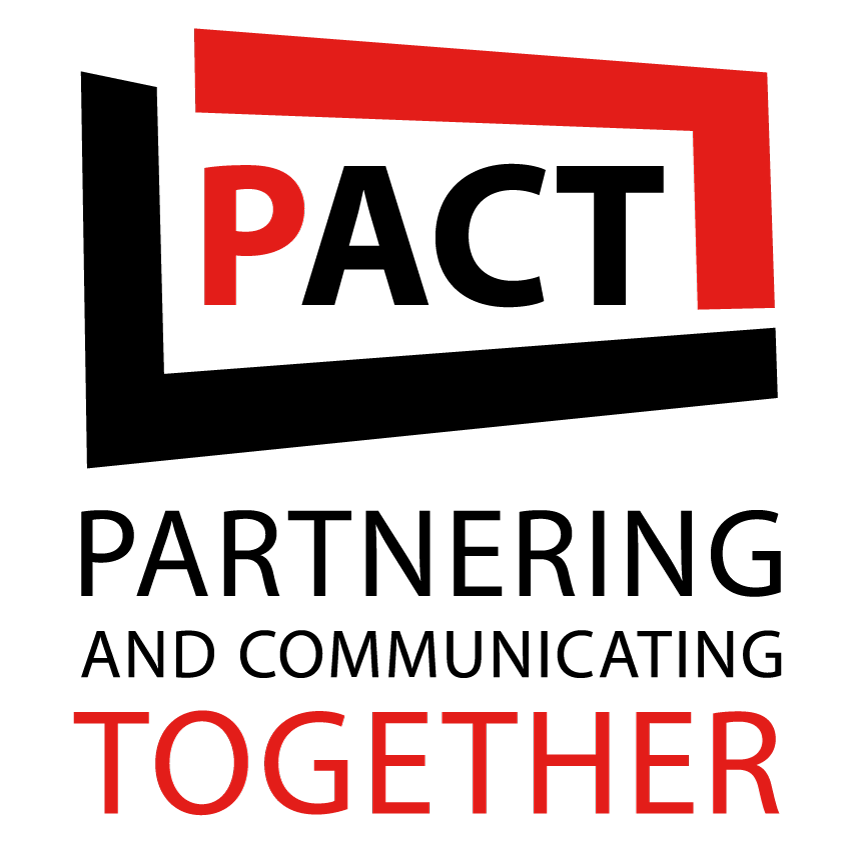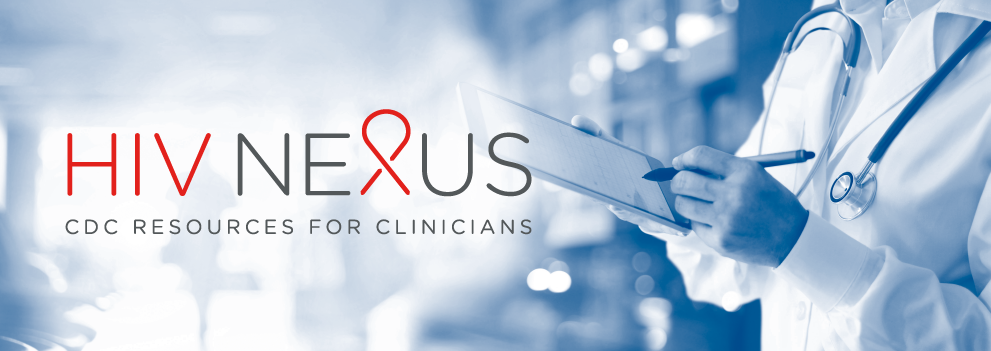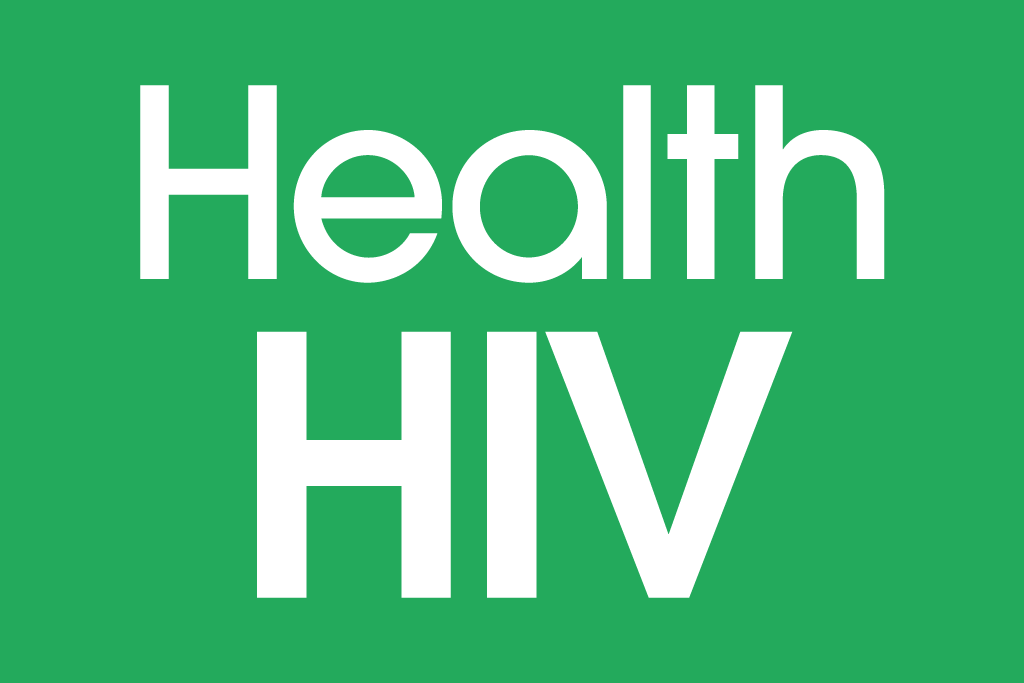HealthHIV and The National Coalition for LGBTQ Health Call on the House to Reject Proposed Cuts to HIV Program
In today’s fiscal year 2026 Labor-HHS markup, the committee majority advanced a devastating nearly $2 billion in cuts to federal HIV programs. That means eliminating all CDC HIV prevention funding — about $1 billion — slashing $525 million from the Ryan White HIV/AIDS Program, and zeroing out the Minority HIV/AIDS Fund. It would also end the Trump Administration’s own Ending the HIV Epidemic (EHE) initiative.
HealthHIV Opposes the ‘Big Beautiful Bill’ and July Rescissions Threatening HIV Care
Even though the ink hasn’t dried, the implications of the “Big Beautiful Bill” are already clear—particularly for Medicaid and the broader health system supporting People with HIV (PWH). With deep federal cuts and structural changes baked into the bill, core safety-net programs face serious threats. Hospitals in rural and underserved areas—already stretched thin—may be pushed closer to crisis. And because Medicaid covers over 40% of people with HIV, disruptions to access for antiretrovirals, case management, and wrap-around services could reverse decades of public health gains.
Statement on Senate Bill Jeopardizing HIV Services and Calling for House to Act
HealthHIV strongly opposes the Senate-passed reconciliation bill, which would eliminate Medicaid coverage for millions, destabilize HIV care systems, and unravel the very infrastructure meant to support public health in America. This legislation does not reform—it retreats and reverses decades of progress, strips access from more than 17 million people, and severely undermines national efforts to end the HIV epidemic.
Braidwood Decision Preserves Preventative Healthcare Access
HealthHIV and the National Coalition for LGBTQ Health welcome today’s Supreme Court decision in Kennedy v. Braidwood Management, Inc, which upholds the federal government’s prior position; and affirms the authority of the U.S. Preventive Services Task Force (USPSTF) in guiding coverage requirements under the Patient Protection and Affordable Care Act (ACA).
This ruling preserves access to critical preventive health services for millions of Americans, including HIV pre-exposure prophylaxis (PrEP)—a proven intervention in the fight to end the HIV epidemic.
ACIP Dismissals Raise Concern Over Vaccine Policy Stability
HealthHIV and the National Coalition for LGBTQ Health are deeply troubled by the decision of Health and Human Services (HHS) Secretary Robert F. Kennedy Jr. to remove all 17 members of the CDC’s Advisory Committee on Immunization Practices (ACIP) on June 9th, 2025. These experts served essential roles in shaping national vaccine policy, and their guidance reflected widely accepted scientific evidence and proven public health priorities.
FDA’s New COVID-19 Vaccine Framework Places Immunocompromised People at Risk
The Food and Drug Administration’s (FDA) newest framework would limit approved use of updated versions of COVID-19 vaccines to those 65 years of age and older and those under 65 who have specific chronic conditions unless manufacturers run costly, unethical, and time-intensive randomized, placebo-controlled trials. This framework will put people who are immunocompromised at risk.
Urgent Need for Systemic Change, Targeted Interventions, and Enhanced Advocacy to Address Needs of People Aging with HIV
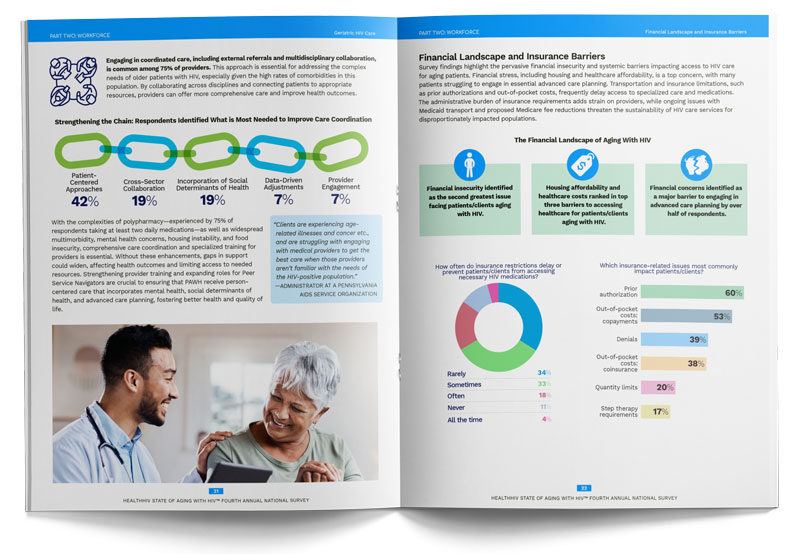
HealthHIV’s Fourth Annual State of Aging with HIV™ National Survey examines crucial issues affecting people aging with HIV (PAWH) and the workforce that supports them. The findings reveal four interconnected challenges: financial precarity and persistent insurance gaps that block access to essential care, declining quality of life driven by widespread mental health challenges, a shortage of aging-focused services leaving caregivers and communities unsupported, and rising frustration with the healthcare system and insufficient government protections.
HealthHIV HIV PrEP Navigation Certification Program™ Expanded and Recertified
HealthHIV announces that its HIV PrEP Navigation Certification™ Program (HIVPNC) has been expanded and recertified for another year. With several thousand providers enrolled in this program during its inaugural year, the availability of this specialized education and training is filling the gaps necessary for the healthcare workforce to continue making strides on Ending the HIV Epidemic in the United States.
HIV Care Workforce Shortages, Behavioral Health Service Gaps and Treatment Access Barriers Reflect the Current State of HIV Care
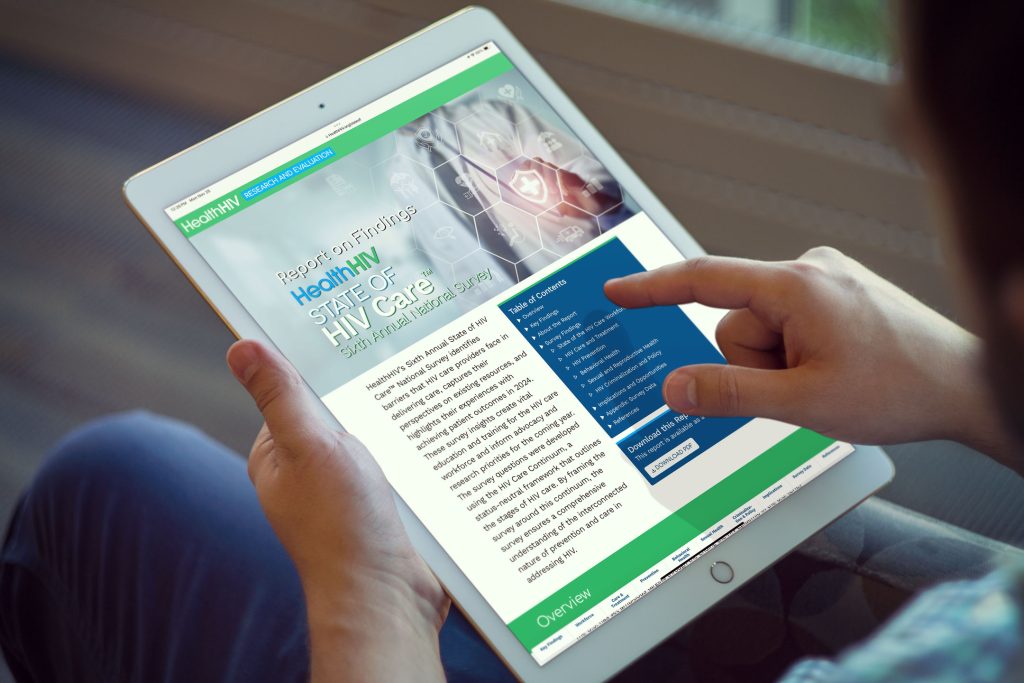
Workforce shortages driven by burnout and inadequate pay are creating behavioral health service gaps, while limited patient access to innovative treatments continues to challenge the state of HIV care, according to HealthHIV’s State of HIV Care™ Sixth Annual National Survey. The survey of HIV care and service providers highlights national trends, showing a workforce facing significant obstacles in delivering effective HIV care due to systemic inequities and ongoing financial constraints, which hinder equitable access to HIV prevention, care, and treatment.
HealthHIV Releases Advocacy Paper on Impact of Prescription Drug Affordability Boards and Upper Payment Limits on Drug Pricing, Patient Access, and Innovation
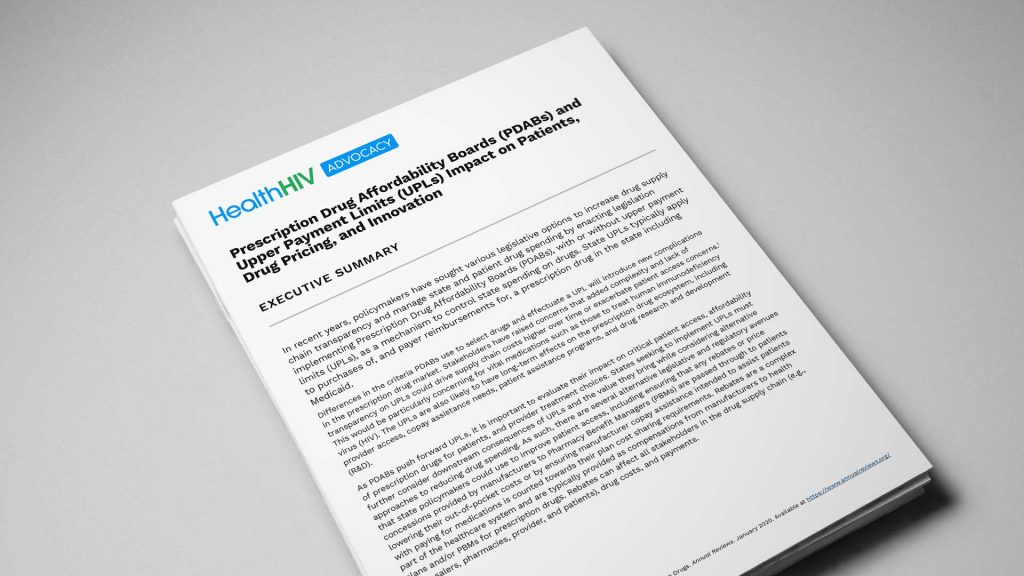
In response to the evolving landscape of healthcare and prescription drug affordability, HealthHIV has just released the advocacy paper Prescription Drug Affordability Boards (PDABs) and Upper Payment Limits (UPLs) on Drug Pricing, Patient Access, and Innovation. The introduction of PDABs and Upper Payment Limits UPLs marks a shift in state-led efforts to control drug costs. This shift raises critical, unaddressed concerns about the potential for increased complexity in drug pricing and fundamental access to essential health medications.

